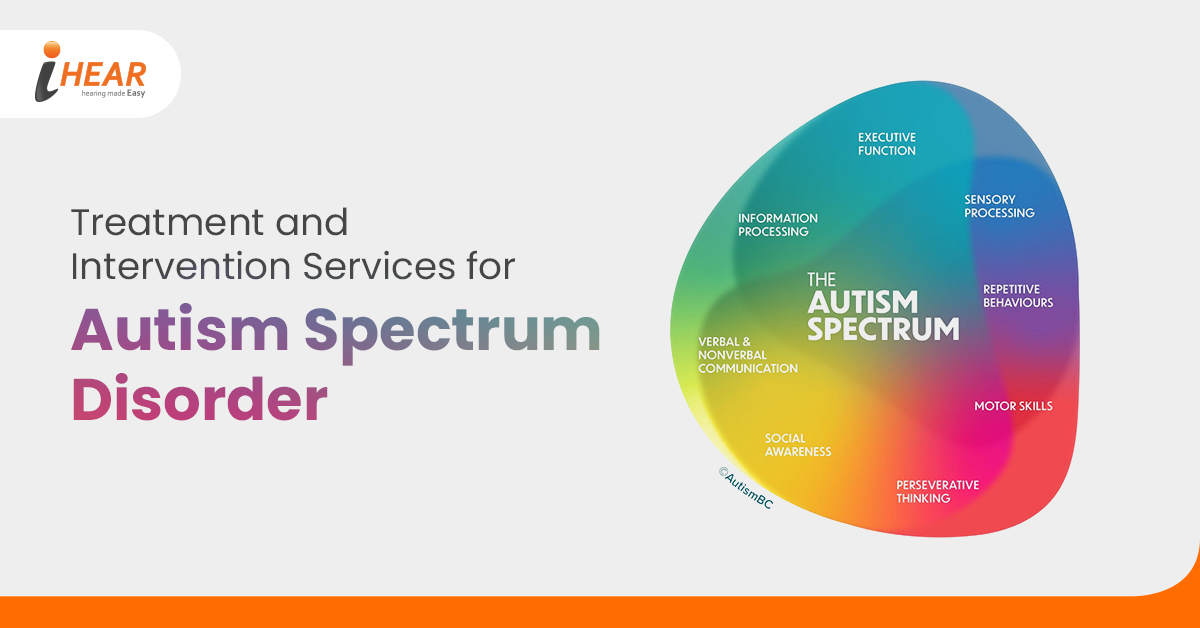Treatment and Intervention Services for Autism Spectrum Disorder
Autism Spectrum Disorder (ASD) is a complex neurodevelopmental condition characterized by challenges in social communication and repetitive behaviors. While there is no cure for ASD, early and targeted interventions can significantly improve the overall well-being and functionality of individuals on the spectrum. The spectrum encompasses a wide range of abilities and challenges, making personalized and comprehensive treatment approaches crucial for addressing the unique needs of each individual.
Early Intervention as a Cornerstone:
Early identification and intervention are pivotal in supporting individuals with ASD. Early childhood programs and interventions aim to enhance communication skills, social interaction, and mitigate behavioral challenges. The emphasis is on providing a supportive environment that fosters developmental progress during the crucial early years.
Behavioral Therapies:
Applied Behavior Analysis (ABA) stands out as one of the most widely used and researched behavioral interventions for ASD. ABA involves breaking down complex skills into manageable tasks and using positive reinforcement to encourage desired behaviors. This approach has proven effective in improving communication, social skills, and reducing challenging behaviors.
Speech and Language Therapy:
Communication difficulties are common among individuals with ASD. Speech and language therapy focus on improving expressive and receptive language skills, enhancing verbal and nonverbal communication. These interventions are tailored to the specific needs and communication styles of individuals on the spectrum.
Occupational Therapy:
Occupational therapy plays a crucial role in addressing challenges related to motor coordination, sensory processing, and daily living skills. Tailored interventions help individuals develop the skills necessary for independent functioning, navigate sensory sensitivities, and engage in meaningful activities.
Social Skills Training:
Social skills training programs are designed to equip individuals with ASD with the tools needed for successful social interactions. These interventions often incorporate structured activities to teach and practice social skills in various contexts, fostering improved social communication and connections.
Educational Support:
Specialized education programs are essential for individuals with ASD. Individualized Education Plans (IEPs) ensure that educational strategies align with the individual’s learning style and needs. Collaboration between educators, therapists, and parents creates a supportive learning environment that caters to the unique strengths and challenges of each student.
Medication Management:
While not a primary treatment, medications may be prescribed to manage co-occurring conditions or symptoms associated with ASD, such as anxiety, depression, or attention deficits. Medication decisions are typically made in consultation with healthcare professionals and closely monitored for effectiveness and side effects.
Parent Training and Support:
Parental involvement is integral to the success of interventions for ASD. Parent training programs provide families with the tools and strategies needed to support their child’s development, manage behaviors effectively, and create a nurturing home environment.
Sensory Integration Therapy:
Many individuals with ASD experience sensory sensitivities or challenges. Sensory integration therapy helps individuals process and respond to sensory input more effectively, reducing sensory-related distress and improving the ability to engage in daily activities.
Transition Planning:
As individuals with ASD Autism Spectrum Disorder transition into adolescence and adulthood, comprehensive transition planning becomes paramount. This involves preparing for changes in education, employment, and independent living. Best Autism therapy & treatment center in Kolkata IHEAR. Transition services help individuals develop the skills necessary for a successful transition to adulthood.
Conclusion:
In conclusion, the treatment and intervention services for Autism Spectrum Disorder are multifaceted, recognizing the diverse needs of individuals on the spectrum. Early identification and intervention, supported by evidence-based approaches such as ABA, speech and language therapy, and occupational therapy, form the foundation of effective care. Educational support tailored to the individual, medication management when necessary, and ongoing parental training contribute to the holistic approach needed for optimal outcomes.
Sensory integration therapy addresses unique sensory challenges, and transition planning ensures that individuals are well-prepared for the evolving demands of adulthood. The key to success lies in the collaboration of a multidisciplinary team, including psychologists, therapists, educators, and healthcare professionals, working in tandem with families. As our understanding of ASD advances, these comprehensive treatment and intervention services continue to evolve, offering hope and support for individuals with ASD and their families on their unique journeys.

